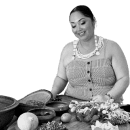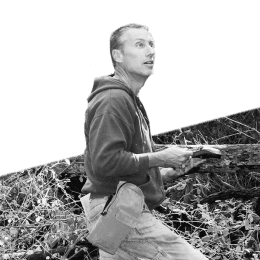Maybe it was the way your childhood home smelled on Thanksgiving, maybe it was that slice of watermelon outside on a hot day, maybe it was the first time you tried that unfamiliar food you never thought you would like.
Whatever it was, it left an impression on you. It created a deep and unforgettable memory. And it is something you return to over and over again.
We look at those culinary moments and the legacies that brought us where we are today. While it might seem strange to start a conversation about the future of food with the past, those moments shape how we look forward.
In this first episode of Eating Tomorrow, we explore the history of food, from topics such as heritage seeds to heirloom recipes — with a focus on how history is, even still, directly affecting the future of food.
What choices got us to where we are? What do we need to change? What do we need to preserve?
Main Course
- An excursion to Norway’s Svalbard Seed Vault. Yep, the same one featured on Futurama.
- A curating of seeds as carriers of heritage. Pat Gwin’s 20+ years of work to reclaim a genetic heritage of the Cherokee Nation.
- The value of food beyond the market economy, and how a Brussels community restaurant, Cassonade, is doing just that.
- A reckoning with the past and the present-day impacts of Manifest Destiny. Chef Brave Heart challenges all of us to honor indigenous foods into our kitchens.
- Food that never spoils, ever. The role of heirloom recipes as enduring legacies.
- Listen for the Soy Bonus: The 25,000 varieties in the Svalbard Global Seed Vault.
Extra Helpings
- Chef Brave Heart’s TEDx Talk. Also, follow her Instagram for her upcoming book release.
- In the news, the largest dam removal project in the United States that will set in motion the reclamation of native lands and, thus, food sources. Seventeen billion seeds are set to be planted and monitored.
Next up on the plate:
Squeggs!
How does exploring the edges of science inspire us to make different choices today? What are the ethical concerns we have about the application of science to our food?
Listen Now




